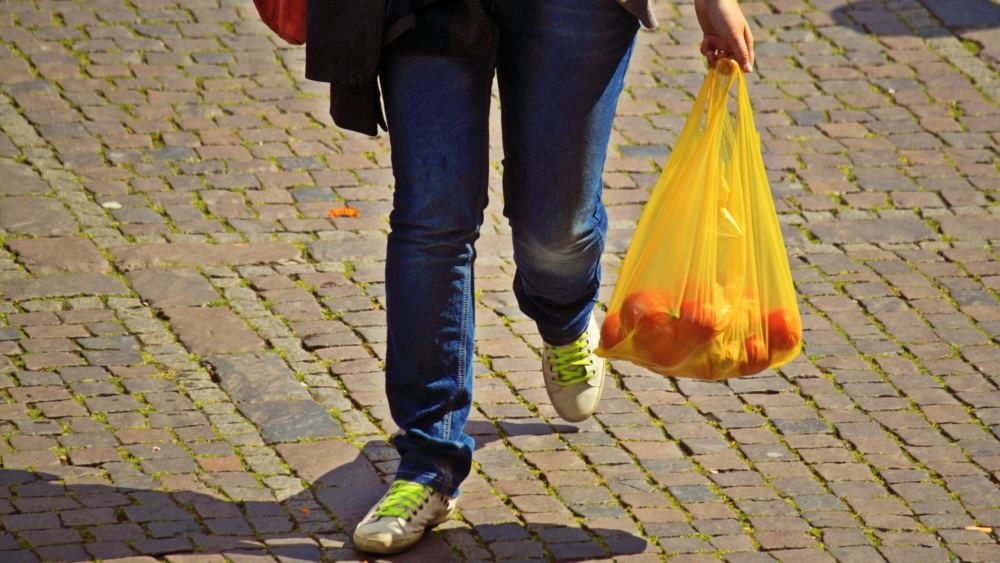Plastic bags are national news again this week, with Coles supermarkets under fire for “backflipping” on their commitment to phase out plastic bags in NSW two days ago, and then backflipping again yesterday.
On Wednesday, the supermarket giant announced it would continue offering complimentary reusable “Better Bags” to customers who did not bring their own bags. The announcement was met with fierce criticism from consumers, with many threatening to boycott the store until the bag ban was restored. Yesterday, Coles managing director John Durkan announced complimentary plastic bags would cease being handed out on August 29.
Coles’ double backflip comes after persistent reports of irate customers behaving badly since Coles removed single-use plastic bags from checkouts on July 1st this year – a full year after the decision was announced.
“Grown men screaming at young teenagers and traumatising them. So sick.” – Twitter user
That was evidently not enough notice for some customers, with reports that some directed their frustrations over the change towards supermarket staff.
“My sister is a manager at Coles and the amount of abuse they have copped has been dangerous,” one Twitter user wrote. “Grown men screaming at young teenagers and traumatising them. So sick.”
On July 4, western Sydney man Eddie Nahri became an unofficial spokesperson for anti-bag-banners, when he posted a video that went viral of himself loading an entire trolley into the back of his car saying “No bag, no problem? We’ll take the trolley.”
More alarming is an incident that reportedly took place in June at the Woolworths store in Mandurah in Western Australia, where a sales assistant is alleged to have been assaulted by a man who put his hands around her neck after losing his temper over the bag ban.
We encourage customers who receive the complimentary bags to bring those bags back for their next shop.” – Coles spokesperson
Coles has declined to comment on their customers’ behaviour, instead stating “Complimentary reusable plastic bags are intended to be an interim measure to help customers make the transition to reusable bags.”
“We’ve been delighted to see customers grow more accustomed to bringing their reusable bags from home, so they are relying less on complimentary bags at the checkout. Many customers bringing bags from home are still finding themselves short a bag or two, so we are offering complimentary reusable Better Bags to help them complete their shopping. We encourage customers who receive the complimentary bags to bring those bags back for their next shop.”
Faced with change-resistant customers, both Coles and Woolworths have chosen to give away the sturdy, reusable plastic bags (called “Better Bags” by Coles). The bags had originally priced at 15 cents to encourage customers to bring their own bags. But Coles insists:
“We encourage customers who receive the complimentary bags to bring those bags back for their next shop.”
“We're all shocked at Coles' decision. One month down the line of getting rid of these non-reusable plastic bags, and let's face it the 15 cents they charge is not the price of the bag, that's the price of changing people's behaviour.” @CRAIG_CHUNG on #Coles plastic bags #TheDrum pic.twitter.com/aTfdo6Hj8F
— ABC The Drum (@ABCthedrum) August 1, 2018
As tempers have risen over the ban, Australians have unwittingly found themselves wrestling with a higher concept that is particularly meaningful to Christians – that of personal sacrifice for the greater good.
Ban-the-bag advocates are adamant that the inconvenience to customers of having to bring their own reusable bags to the supermarket is a small price to pay compared to the cost single-use plastic bags impose on the planet.
That’s because petroleum-based plastic bags do not truly degrade, instead breaking down into small pieces that are easily transported by wind and water and then often mistaken for food by animals, birds, and marine life. The consumed plastic then congests the digestive tracts of these animals, causing infection and even suffocation, and can then make its way into the human food chain.
“It seems to me a small sacrifice to take reusable shopping bags so that marine life doesn’t have to die for my convenience.” – Dr Mick Pope
As a result, many people have criticised ban-bag opponents for their sense of entitlement (see Ben Langford’s opinion piece for the Illawarra Mercury ‘Hey, entitled adults: raging about plastic bags is stupid‘).
Today, Dr Mick Pope – Professor of Environmental Mission at Missional University and Ethos Environment Coordinator, Ethos Australia’s Centre for Christianity and Society – weighed in to the debate.
“The fundamental model for Christian ethics is self-sacrifice or self-emptying as demonstrated on the cross. We are other-centred, not self-centred. It seems to me a small sacrifice to take reusable shopping bags so that marine life doesn’t have to die for my convenience. After all, aren’t the oceans teeming with God’s creatures? (Psalm 104:25)”
In Queensland, Tasmania, South Australia, WA and the ACT, single-use plastic bags have already been banned and no casualties have resulted, despite fears of infection from unwashed green bags by one social commentator. However, unlike other states, in NSW the move was instigated by a partnership between grocery heavyweights Coles and Woolworths rather than in response to new state legislation.
In July last year, NSW Premier Gladys Berejiklian told a meeting at the Tweed Chamber of Commerce that she wouldn’t ban plastic bags because “[Coles, Woolworths and Harris Farm] produce about 80 per cent of the plastic bags in NSW, so in essence they themselves would ban the plastic bag.”
“I don’t need to put a law in for something that’s already happening,” she said.
Whether the NSW Premier’s confidence in the private sector’s ability to lead consumers to sacrifice personal convenience for the greater good of caring for our global home is well-founded remains to be seen. Yet clearly, if customers choose to prioritise personal convenience over the planet, the plastic-bag ban is destined to break down a little more each day. If only the same could be said for the plastic bags in question.
Email This Story
Why not send this to a friend?


